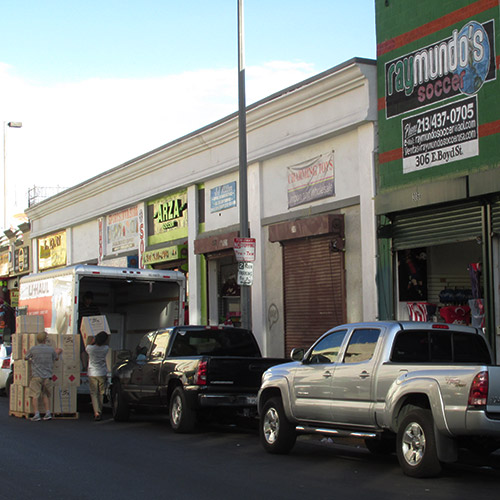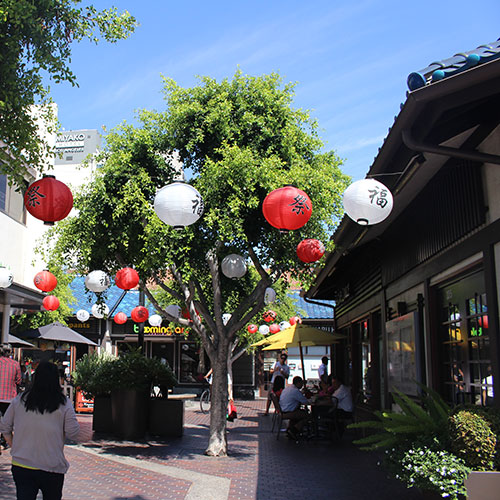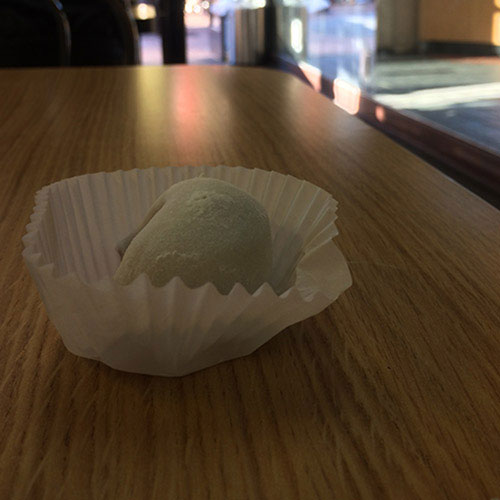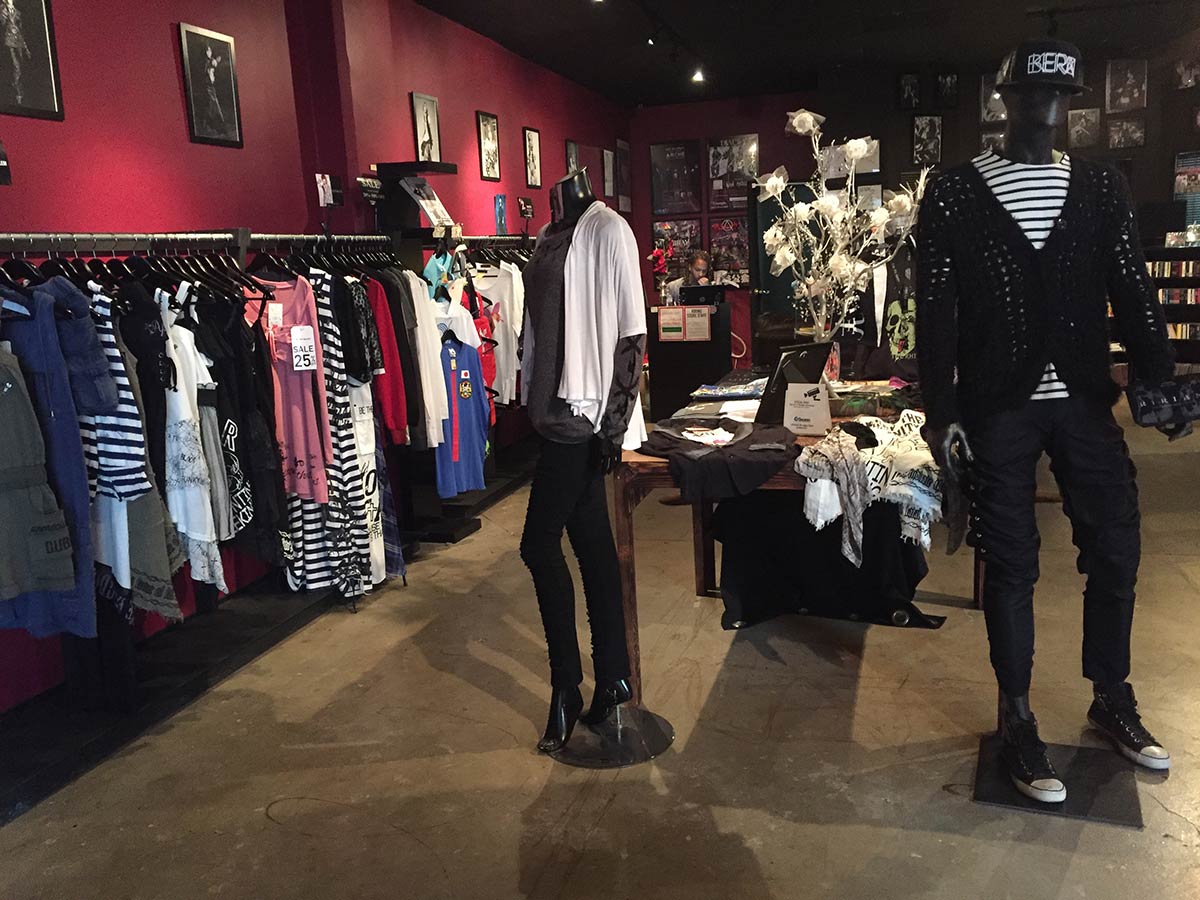
Importing Shibuya style to the States
With strobe lights and loud music radiating from its open doors, XENON stands out from the multitude of stores in Little Tokyo’s Japanese Village Plaza. Inside, the dark red walls play background to lines of clothing. In the corner, records and CDs are stacked on black shelves under photos of Japanese rock musicians.
As the official store of the Japanese rock and fashion publication Cure Magazine, XENON carries both the fashion and the music popular in the Japanese rock culture. The magazine published its first issue in 2003 featuring Japanese visual kei bands and the street rock fashion surrounding the visual kei genre. The store opened in July 2014 under Japan Culture Creation Inc. (JCC Inc.), the subsidiary U.S. company of Asia House. Asia House also owns Cure Magazine.
“Basically because Cure Magazine has been introducing visual kei music artists plus blending in fashion, they made it into a store,” said Justin Takada, the vice president of JCC Inc. “We wanted to introduce the Japanese music, plus the fashion – the Shibuya style – to the States more.”
The store features designers from the Shibuya District like Jury Black, a rock street-fashion brand; Ghost of Harlem, a female Shibuya-style fashion line; and Ririan, XENON's own brand. Like American rock, Japanese rock fashion includes staples like leather jackets, vests, jeans and parkas.
“Lately we’ve been seeing a lot of loose clothes,” Takada said. “There’s a lot of wavy forms where when you’re walking or when you turn there are different expressions to the movement of the fashion.”
But according to Takada, the real quality that sets Japanese rock style apart is its individuality. “I think Japan, and especially the Shibuya fashion, pulls out the characters of each item that could be a staple,” he said. “What you find in the states actually is called street fashion, but in Japan they would probably upgrade it a little bit."
This “upgrade” could mean adding decorations like devil horns to a hood or cutting the sleeves off a parka to make it wearable in the summer, Takada said.
“They focus on trying to express themselves. That’s why they wear make up like eyeliner... or dye their hair blue or green,” he said. “I think it’s flashier.”
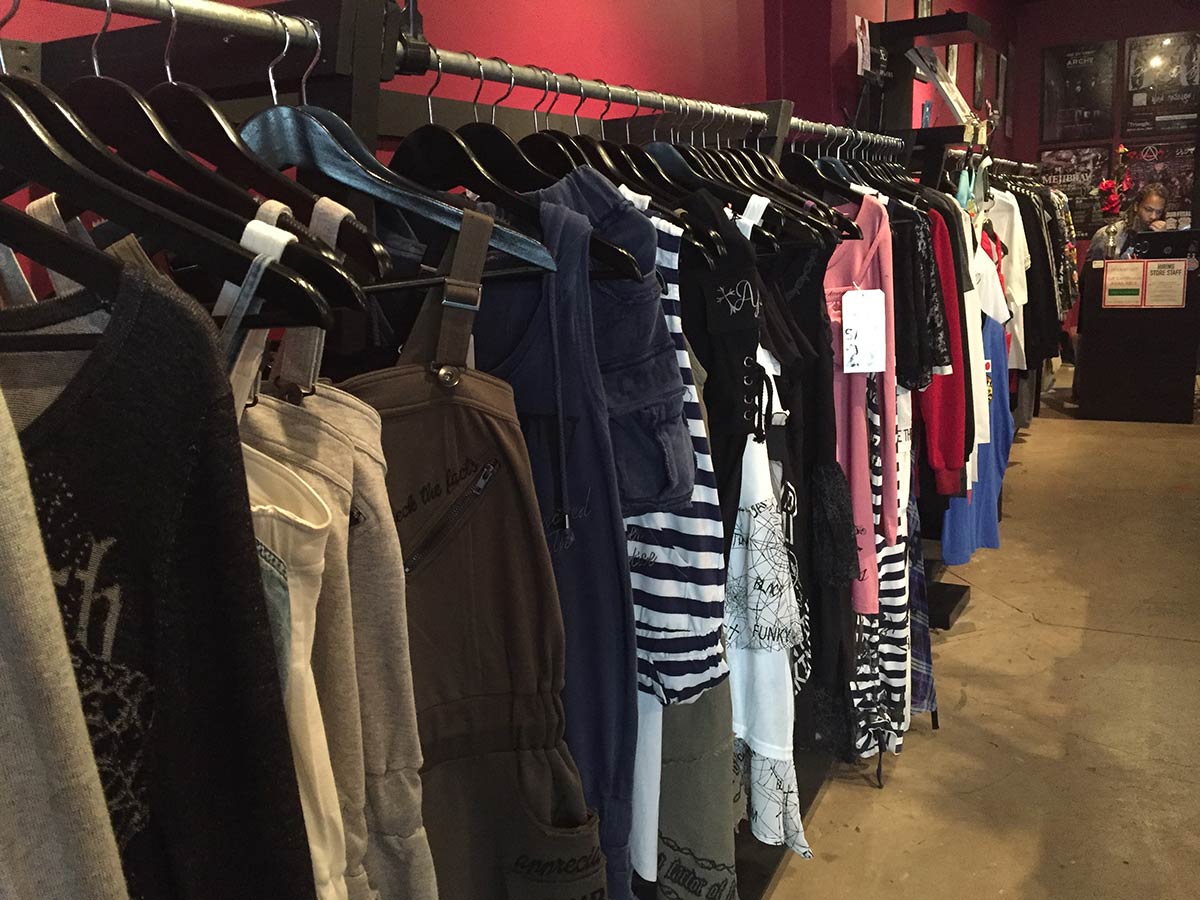
Even though the store carries only Japanese designers, JCC Inc. chose to open in the United States because of the difficulty U.S. fans had buying Japanese-rock fashion. Because the style was only available through Japanese online shops that didn’t function in English, many people had difficulty actually buying the clothing.
“So we thought, ‘Ok, let’s just open the door.’ Make a store location which basically makes it easier for people in the States to be able to get the items that they wanted in hand.”
The company chose California because it’s the closest state to Japan, and centered in Los Angeles’ Little Tokyo because of its Japanese roots. “We could have opened it anywhere, the only thing is just because we thought we’re Japanese, we should stick in Little Tokyo,” Takada said.
The store’s hours are scheduled around when the area is busiest, open six days each week in the afternoon and only from 3-8 p.m. Tuesday through Friday. “It’s just because of the area here,” Takada said. “During the noontime there’s not much traffic either, so we just basically chose the timing that had more traffic.”
Though XENON mainly relies on Cure Magazine fans for word-of-mouth publicity, walk-ins also play an important role in attracting new customers. “People who walk by get exposed to it,” Takada said. “The people who liked it, purchased it and spread the word more.”
XENON has also expanded its customer base through in-store music and fashion events run by Nameless, JCC Inc.’s music label and live event promotion agency. “People from other states actually fly in to come and watch those,” Takada said.
Despite the lack of advertising and limited hours, XENON still makes more sales than its website, which launched in September. “There’s been a lot of people coming in,” Takada said. “If you search for us on social networks like Instagram or Facebook, there’s many people tagging us now. A lot of people spreading the word.”
